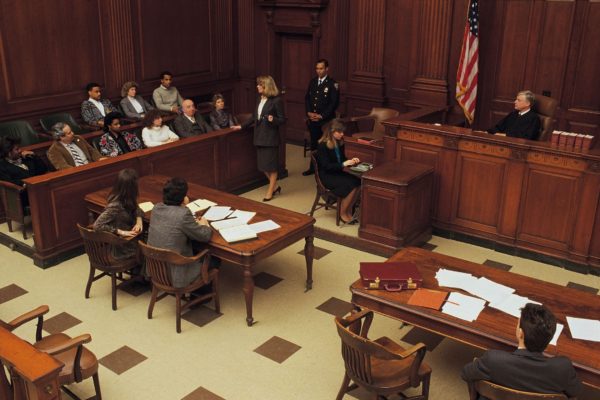[column parallax_bg=”disabled” parallax_bg_inertia=”-0.2″ extended=”false” extended_padding=”true” background_color=”” background_image=”” background_repeat=”” background_position=”” background_size=”auto” background_attachment=”” hide_bg_lowres=”false” background_video=”” vertical_padding_top=”0″ vertical_padding_bottom=”50″ more_link=”” more_text=”” left_border=”transparent” class=”” id=”” title=”” title_type=”single” animation=”none” width=”1/1″ last=”true”]
[column_1 width=”1/1″ last=”true” title=”” title_type=”single” animation=”none” implicit=”true”]
Buyer Beware: Things You
Should Know When Purchasing a Home
By: Lisa G. Godfrey
Buying a home is the largest single purchase most people will make in their lifetime. In order to avoid problems after the sale, it is important to know what must be disclosed to you prior to the sale, and what you are required to learn on your own about the property.
For the majority of people, the physical condition of the property is the most important aspect. In North Carolina, sellers of residential real estate must complete a residential real estate disclosure statement which outlines the level of knowledge of the existing homeowner on major structural and mechanical systems within the home. The homeowners must disclose what they know about the age of the roof, any major repairs to the structure and/or furnace, heating and air system, hot water heater, etc. The problem with this disclosure statement is that it puts no duty on the existing homeowner to make any investigation of the status of these systems. Thus, it is impossible to rely on the representations in this document, particularly if the home has not been owned for a lengthy period of time by the existing owner.
Most real estate sales contracts allow for a termite inspection and a structural and mechanical inspection of the property. You should always hire a reputable home inspector to review the property prior to closing. Usually, this inspection will generate a list of repairs that will need to be made prior to the deed changing hands. An independent home inspector is your best first defense in avoiding problems with the structure or major systems in the home after the closing.
The physical condition of your home is not the only major concern prior to closing. You will also want to assure yourself that the property is validly owned by the seller and that there are no liens, judgments or unpaid taxes owed. In order to make the proper investigation of title, you must have a competent real estate attorney perform a title search. In most cases, if you are borrowing money from a bank to purchase your home, a title search and title insurance will be required by your lender. However, in the case of a cash sale, there is no one to make this requirement. Therefore, you should contact an attorney to perform a title search and handle the closing matters for you.
If you are purchasing a home in a subdivision or other community that has been developed in the last 25 to 30 years, you should specifically ask if there are any “Declarations and Covenants” affecting the property. Most developers of subdivisions have drafted such requirements, and they are filed as part of the public record. They can be found at the Register of Deeds in the county where you are purchasing property. The Declarations and Covenants can be quite lengthy, and a copy should be available to you from the seller and/or developer of the property.
It is important to review the Declarations and Covenants affecting your home prior to closing. If you have specific questions or do not understand some of the requirements, you may want to discuss these with your closing attorney. The Declarations and Covenants dictate how you may use your property and what you may build on it. These restrictions are over and above any normal zoning requirements, and are enforceable against you by either your neighbors or the homeowners association of the development.
The purchase of a home is an exciting and stress-filled time in most people’s lives. By taking a little extra time and effort to check out the integrity of the property, the status of title and the restrictions of use of the property, there will be much less chance of unpleasant surprises after the closing.
Lisa Godfrey is an attorney with Knox Law Center. The firm’s website is http://knoxlawcenter.com/. Open now is the newest office in Denver located at Hwy 16/73- Waterside Crossing. Mrs. Godfrey can be reached at 704-315-2363 or 866-704-9059 (Toll free) or at [email protected].
[/column_1]
[/column]
[column parallax_bg=”fixed” parallax_bg_inertia=”-0.2″ extended=”true” extended_padding=”true” background_color=”” background_image=”http://knoxlawcenter.com/wp-content/uploads/scales-of-justice-extra-white.jpg” background_repeat=”” background_position=”” background_size=”auto” background_attachment=”” hide_bg_lowres=”false” background_video=”” vertical_padding_top=”30″ vertical_padding_bottom=”70″ more_link=”” more_text=”” left_border=”transparent” class=”” id=”REQUEST-CONSULTATION” title=”” title_type=”single” animation=”none” width=”1/1″ last=”true”]
[text_divider type=”single”]
How Can We Serve You?
[/text_divider]
[column_1 width=”1/1″ last=”true” title=”” title_type=”single” animation=”none” implicit=”true”]
[push h=”-20″]
Fields with * are required.
[push h=”20″]
[/column_1]
[column_1 width=”1/1″ last=”true” title=”” title_type=”single” animation=”none” implicit=”true”]
[/column_1]
[/column]






